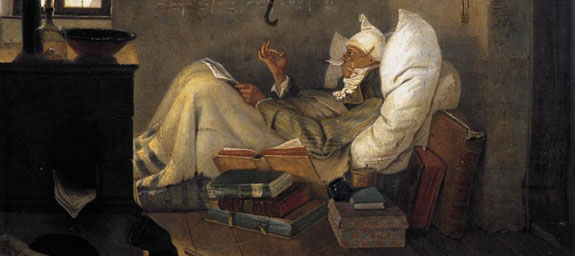
Poetry - or carefully arranged,
inspired speech - is a feature of all cultures, past and present and, presumably,
future. Today, just as poetry always has done, it continues to offer revelatory
perspectives on the whole spectrum of experience. In one way poetry is timeless
- poems written long ago in vastly different historical contexts can still be
read with real enjoyment. In another way, poetry has a strong relation to the
particular historical moment of its making. Poetry may sometimes seem like a
private art form but it is always imprinted with the social, the communal and
the shared. In this course we will try to keep both poetry's characteristics
- its timelessness and its time-boundness - in focus. Both are factors in the
more or less evident esteem that most societies have for poets.
The course is designed to enhance your understanding of what poetry in English
is, how it works, what it can do, why it has evolved in the ways it has, and
why it is important to know how to read it. It also, and just as importantly,
aims to increase the pleasure you can take in reading a poem, whether it is
a tiny, highly stylized medieval lyric or a modern confessional poem in free
verse. It assumes no special knowledge of poetic history or of interpretive
techniques. Requirements include the chance (or duty) to learn a short stretch
of your favourite poetry by heart and the chance (or duty) to write a short
poem. (It does not have to be a "good" poem, it just has to observe
the basic technical rules of a poetic form, something anyone can do.)
So this is not primarily a survey or literary history course designed to inculcate
dates and facts. Rather, it is a chance for you to acquire familiarity with
the main questions to ask of any poem you ever read, hear or overhear, whether
in a college class, in a newspaper or on a subway train. It should also train
you to understand the answers the poem gives. We will move forwards in a loosely
chronological fashion but there will be many occasions when within a single
lecture we fast-forward or rewind from one century to another in order to trace
the development of a poetic form such as the sonnet, a genre such as the elegy,
or a language issue such as poetic tone.

